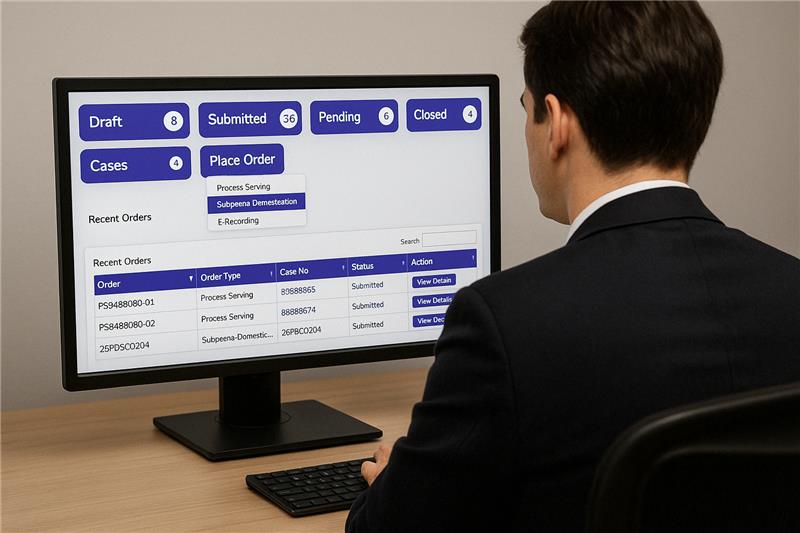Trying to serve a New York subpoena on a person or business in California? Learn how to properly domesticate a subpoena under the Uniform Interstate Depositions and Discovery Act (UIDDA), avoid delays, and complete service legally.
When you need documents, testimony, or records from someone located in California for a case pending in New York, you can’t simply serve them with a New York subpoena. California law requires that the subpoena be domesticated—meaning issued and re-filed through the California court system—before it can be legally served.
Fortunately, both New York and California have adopted the Uniform Interstate Depositions and Discovery Act (UIDDA), which streamlines the domestication process between states.
Here’s how to domesticate a subpoena issued in New York for service in California:
To domesticate the subpoena, you’ll need the following:
Ensure the subpoena is filled out but not yet signed. The court clerk will sign and issue it after review.
File your documents in the Superior Court of the county where the person or business to be served is located. No formal motion or local attorney is needed under UIDDA.
Some counties allow in-person filing, others allow eFiling, and a few require wet signatures. Always check local court rules before filing.
The standard fee for filing an Application for Discovery Subpoena (SUBP-030) is $45.00, per Government Code § 70626(b)(5).
Once the California subpoena has been issued by the Clerk, it must be served according to California law—typically by a registered process server or an individual over 18 who is not a party to the case.
For subpoenaing business records, ensure compliance with Evidence Code §§ 1560–1561.
You may need to domesticate a New York subpoena in California if:
At Countrywide Process, we handle subpoena domestication and service of process across California. You don’t need to figure out local rules or wait in court lines—we take care of the filing, issuance, and legal service from start to finish.
✅ Submit your New York subpoena
✅ We help you generate the California forms
✅ File and issue through the right court
✅ Serve your documents legally and on time
✅ Proof of service and court-stamped copies provided
Use our Platform to submit your Subpoena Domestication Order or call us at (888) 962-9696 to begin the process today.
Q: Does the witness need to be in California for domestication?
Yes. California courts only issue subpoenas for witnesses located within their jurisdiction.
Q: How long does the domestication process take?
Typically 1–3 business days, depending on the court’s processing time.
Q: Do I need to appear in court to file the subpoena?
No, the process is administrative. We can file on your behalf.
Q: Can I subpoena electronically stored data (ESI)?
Yes, California subpoenas can request ESI such as emails or files, but specify the format and scope clearly.
Q: Is UIDDA required for all subpoenas?
UIDDA governs subpoenas for discovery in civil cases. Criminal cases may follow a different process.
Lorem Ipsum is simply dummy text of the printing and typesetting industry. Lorem Ipsum has been the industry’s standard dummy text ever since the 1500s, when an unknown printer took a galley of type and scrambled it to make a type specimen book.

Countrywide Process
April 23, 2025